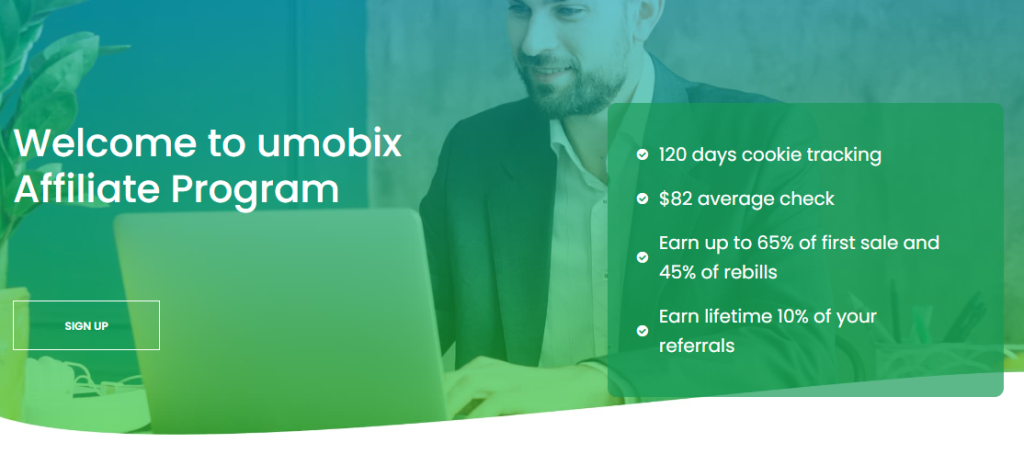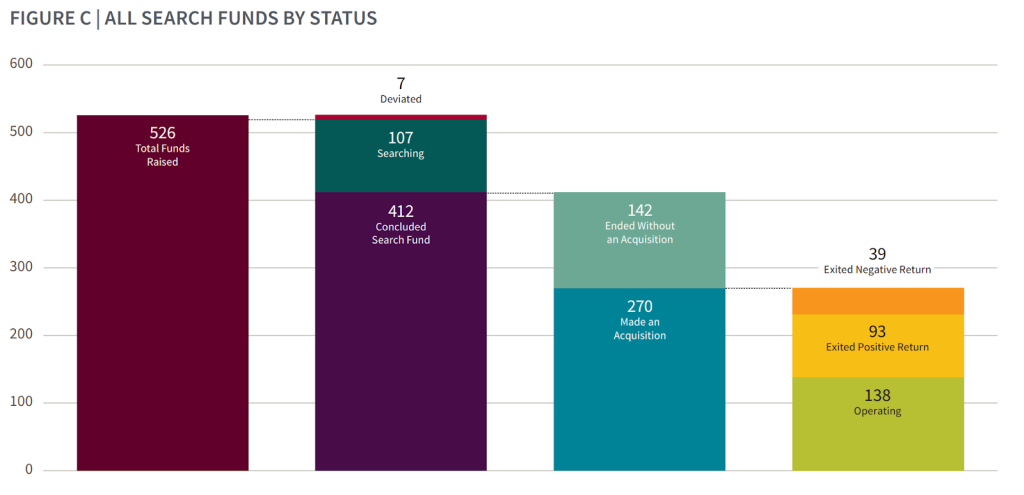Business
The TopRanked.io Weekly Digest: What’s Hot in Affiliate Marketing [uMobix Affiliate Program Review]
This week, we’re covering everything from hustle culture to spying on kids, making this affiliate digest look like it has no rhyme or reason. But, if you look a little closer, everything that’s about to follow is all geared towards making you some money. So buckle up for a wild ride through a bunch of monetizable trends and news items, along with a review of the fantastic uMobix affiliate program.

Quick Disclosure: We’re about to tell you how uMobix runs a top-notch affiliate program. And we really mean it. Just know that if you click on a uMobix link, we may earn a small commission. Your choice.
Say the word “spy” these days, and the first thing that comes to mind is probably Mark Zuckerberg.

But spying’s not exactly a new, high-tech phenomenon.

Truth be told, everyone’s been spying on everyone since the dawn of civilization.
In fact, some Christians even have a thing called “Spy Wednesday” because everyone reckons Judas was a spy.

So if spying is such a thing, then where are all the ways to monetize on it?
Here’s one answer.
Topranked.io Affiliate Program of the Week — uMobix Affiliate Program Review
If you’re gonna find ways to monetize on “spying”, then you first gotta know who’s spying on who. One answer to that question that’s as old as time itself is parents spying on their kids.
Now, back in the day, this was a fairly low-tech affair.
But today, with kids practically living online, things have changed. That’s why more parents are turning to uMobix — the cell phone tracker for modern parents.

Here’s What uMobix Is All About
As stated on the carton, uMobix is a cell phone tracker for the modern parent. To rattle off a quick feature list, uMobix allows parents to:
- Monitor incoming and outgoing calls
- Monitor all sent, received, or deleted SMS.
- Read messages sent and received via WhatsApp, Facebook, Instagram, and more.
- Pull all media files stored on target device.
- Get an accurate real-time location of the user along with visited places history.
- Log everything that a user types, including keystrokes and passwords.
Basically, uMobix gives parents the keys to their child’s online lives.
And before you say “But that’s really creepy”, read through to the news section — this sort of stuff is in hot demand (and there’s a gap in the market waiting for you to fill it).

Here’s What You Can Expect to Earn
Now, let’s get one thing out of the way — uMobix made a really bad play by putting their “average check” figure in the banner.
The reality is, that most affiliates who sign up for a program won’t earn much. This applies to every program out there, and it pulls the average way down.
But those who know what they’re doing and put in some sort of effort will fast find themselves far outpacing the “average” affiliate.
So here’s how that could look like with uMobix.
To start with, here’s the pricing plans for uMobix.

So, parents subscribing to uMobix on a monthly basis will pay $599.88 a year. Parents subscribing to uMobix on a quarterly basis will pay $359.88. And those paying yearly will pay $149.88.
Now, as for the commission rates, they work as follows.
| Tier (sales/month) | First Sale Comission Rate | Rebills Comission Rate |
| Up to 99 | 45% | 25% |
| 99-199 | 55% | 35% |
| 199+ | 65% | 45% |
For the sake of being conservative, let’s just stick with the cheap yearly plan. And let’s assume they won’t resubscribe.
And let’s also assume you’re just starting out and are on the bottom tier.
That means you’ll earn $67.45 (45% of $149.88) for every referral that converts. And, if you can manage to do that just 15 times a month (basically 3-4 sales a week), you’ll earn a check for a little over $1k.
If your referrals pay their uMobix subscription monthly, quarterly, and/or resubscribe, you earn even more. (Actually, you only earn 45% on uMobix rebills… but you’ve already done the work, so this is basically free money.)
And, if you’re able to generate enough sales to move up the uMobix affiliate program tiers, you’re going to be earning massive commissions.

Here’s What Else We Like in the uMobix Affiliate Program
Besides great recurring commissions, the uMobix affiliate program also offers the following.
- 120-day sales tracking
- A two-tier program paying 10%
- Payouts as often as you want ($100 minimum; 2-week hold period)
- Payouts via Payoneer, PayPal or WireTransfer
Here’s What Else You Need to Know
We’ve already posted another uMobix affiliate program review over on TopRanked.io. So, if you wanna read up a bit more on uMobix, head there.
Otherwise, if you wanna sign up to the uMobix affiliate program, head here to start earning.

News Takeaways
College Rankings Shakeup
Even if you’ve never gone to college or had kid that went to college, you’re probably aware colleges get ranked.
What you might not know is that the de-facto standard for college rankings is a little news outlet known as U.S. News & World Report.
You also might not know that this year, they changed their ranking formula.
They’ve also just released their “2024 Best Colleges” rankings. And, with the ranking shakeup, there’s been a few upsets.
The immediate impact of this, according to the New York Times, is that a bunch of schools with “relatively low profiles, climbed at least 50 spots in the rankings.”
Now, to realize just how big this is, you need to understand that these rankings are kinda a big deal.

In fact, they’re a really big deal and have an outsized impact on where people go to college.
The same NYT article highlights that “Schools have said that the rankings have an outsize influence on students and parents, who use them as a proxy for prestige.”
Takeaway
For any given college, there are a bunch of longtail niches surrounding it. For example, if you throw Harvard into any KW tool, you’ll find a bunch of suggestions, like “living cost harvard university”.
And, if you actually pull up the SERPs on any of these, you’ll see there are some people monetizing off of them. For example, one of the top results for “living cost harvard university” has an embedded student loan comparison tool urging readers to “Find [their] rate”.
Now, admittedly, most of these longtail keywords are pretty low volume (that also means low competition). But taken together (there are a lot of them), they add up to something quite substantial.
And, with a bunch of colleges now jumping “50 spots in the rankings”, there’s a pretty good chance those colleges are about to see a whole lot more interest in them.
If you’re smart, this is probably something you should look into. So go find out which colleges jumped, replicate the longtail keywords from a bunch of stalwarts in the rankings (like Harvard) for those colleges, and profit.
And, if you need a good way to monetize, take a look at uMobix. (This will make more sense after you’ve seen the next story.)

Parental Control Tools
Recently, this press release caught my attention. It outlines the findings of an Ipsos Poll conducted last month looking into parents’ beliefs/attitudes towards their children’s online activity.
Now, I’ll spare you the boring bits — you don’t need a poll to tell you what parents are concerned about. And yes, it’s an entirely predictable list that includes social media addiction, cyberbullying, online predators, and all the usual online bogeymen.
What I won’t save you from is my wild inferences from this data — clearly, most parents see their children as innocent victims, as “getting stabbed with a pencil in retaliation for something said online” was nowhere to be seen on the list.

Anyway, to get back on track, here are the juicy bits which stood out:
- 67% of Gen Xers who are parents to kids under 18 don’t use parental controls.
- When it comes to Millennials only 51% refrain from using parental controls.
- This discrepancy isn’t due to Millennials being more tech-savvy. It’s a question of parental trust (Gen Xers trust their kids more, basically).
- In fact, when it comes to awareness of parental control tools, 42% of parents under 34 aren’t even aware of parental control apps (compared to 29% of all respondents).
Now, if you have a nose for opportunities, I think you’d agree this reeks of opportunity.
If you missed it, here’s the key takeaway: Millennials trust their kids less than Gen Xers, but are way more ignorant when it comes to knowing about the parental control tools available to them.

Now, obviously, whether this is an opportunity or not comes down to how many Millenials are actually parents. After all, if we were talking about Zoomers here, even the oldest are only just approaching the child-having age.
When it comes to Millenials, however, things are different.
As it stands right now, the median age for having a kid in the US is about 30. And the average sits at 27.3 years, according to Pew.

Now, Millennials are generally thought to be those born between 1981 and 1996. So, in 2023, they’re between 27 and 42.
If we do the maths on that, that means the average millennial-owned kid these days sits in the range of newborn to somewhere around 16 years old. (Yes, I fudged the numbers a little here — the average age for having a first child was about 26 a decade or so ago.)
Now, before we finally get into our takeaway from all of this, there’s one more fact you need to know about. That fact is best summarized by this line from a Stanford study:
“About 25% of children received phones by age 10.7, and 75% by age 12.6. Nearly all children had phones by age 15 years.”
Basically, the average child gets their first mobile phone somewhere around the age of 11-12.
Takeaway
Let’s recap all of the above.
- The average Millennial is more naive about online safety tools than Gen Xers.
- Yet Millennials, on average, are less trusting of their kids.
- The average Millennial-owned child is currently aged between 0-16 years old.
- The average child gets their first mobile between the ages of 11-12.
This smells like something a smart affiliate could do big things with.
But the idea isn’t to just go and, let’s say, go and blindly run an SEO campaign targeting KWs related to online safety tools.
Instead, the idea would be to backdoor your way into the market by targeting the uninformed millennial masses — the masses who don’t trust their kids, but who also don’t know about the tools available to them.
Of course, there are a thousand ways you could go about this. But, since we’re already on the topic of colleges, let’s use something related to this as an example.
Let’s say, instead of targeting parents actively looking for parental control tools, you instead target parents looking for ways to get their kids to study more.
Let’s run with a clickbait headline — “Parents are SHOCKED: Simple Hack Turns Lazy Kids into Study Machines!”
That simple hack, of course, would be uMobix. All you have to do is tell the story about how your kid spent all his time on Pr0nHub and TikTok. But now that you’re watching him with uMobix, he’s traded in 2girls1bottl3 for better grades.

Here’s Why You Should Acquire a Business
There’s an article that appeared in Bloomberg yesterday — MBAs Are Spurning McKinsey to Buy Small Companies.
The “in a nutshell” summary is that people are ditching the traditional “get an MBA and go work at a Big 3 consulting firm” route. Instead, new MBAs are turning to entrepreneurship.
But not just any old entrepreneurship.
You see, this (book) smart new breed of entrepreneurs aren’t all founding companies from the ground up. Instead, a lot of them are acquiring already existing companies and taking over.
Where it gets interesting is that, while more MBAs are opting for this path, it’s not exactly new. It’s just, now it’s a bigger trend.
This means there’s plenty of research on the success rate of this path.
Like this 2022 study from Stanford looking into the success rates of “search funds”. (A search fund is a type of investment vehicle popular with poor MBA grads who don’t have their own money yet. It’s basic premise is to set up a fund to search for, and potentially acquire a business.)
Here’s what they found:
- Since 1984, 526 search funds have been formed in the U.S. and Canada.
- Of those, 412 ended up making an acquisition.
- Of those 412 acquisitions, 93 sold for a positive return, and 138 are still operating.
- That accounts for about 56% of all acquisitions, suggesting about a 1-in-2 success rate.

Now, while many MBAs would probably like to attribute the high success rate to their MBA, we all know that’s probably like 2% of the equation. After all, the real-world business skills of MBAs have been a long-running joke for a reason.

So what explains it?
Well, here’s a couple of reasons.
First, buying into an existing business means the model is already proven, the client base already exists, and all you really have to do is not eff anything up too much. (Preferably you’ll improve things, but if you acquire wisely, doing more of the same will probably still work out for you.)
Second, the average MBA who goes out and acquires a business probably did it because they were entrepreneurial to begin with. Not because they got an MBA. Instead, getting an MBA was probably just to delay getting a real job while still keeping mom and pop happy, or something else like that.
Takeaway
Clearly, building a business from the ground up isn’t the only path to entrepreneurial freedom. In fact, it’s a significantly riskier path. Especially if you put a dollar value on the time you’ll spend building a business from the ground up.
And, if affiliate marketing’s yout thing, there are also plenty of opportunities to buy existing affiliate businesses. And there are even more opportunities to buy existing businesses that are just dying to have affiliate marketing thrown into their monetization mix.
As to where you can find these businesses, that’s easy. There are plenty of online marketplaces to get you started. We’ve already covered one of the better ones right here in the affiliate marketing digest. In fact, we’ve covered this business buy-sell marketplace twice.
It is, of course, none other than Empire Flippers — you’d do well to check them out.

Twitter’s Throttling Links
Here’s a “only including this because it’s a good reminder of something else” story.

That little picture above contains everything you need for the “reminder” part. But, in case you can’t see it, Twitter/X is throttling links pointing towards Substack, Facebook, Instagram, and Bluesky to the tune of about 2.5s.
Why?
Because they’re all direct competitors, and the longer people have to wait, the more likely they are to bounce (and theoretically just go straight back to Twitter/X).
Takeaway
This is nothing but a simple reminder about how you should keep your site/links snappy. To put a number on why, Google found that a two-second delay increased site abandonment rates by 32 percent. In fact, even just a 1-second delay has an impact (about 7%).
Now, of course, there’s nothing you can do about end users having a slow internet connection.

But you can do a lot by keeping your site lightweight. So start with that.
But what this article is really a reminder of is that everything in your tech stack could impact your conversion rates.
So basically, if you’re using a URL shortener/cloaker/etc. to send traffic to uMobix (or whoever), make sure it’s snappy if you want people to convert (clicking is only half the battle).

Closing Thought
Hustle culture is getting more and more controversial these days.
Now, sure, there are some valid criticisms thrown its way.
But, for the most part, most anti-hustle culture content out there tends to be hard to take seriously. (It’s basically memes.)

Of course, it’s not hard to see why meme-ing on hustle culture has become such a thing.
You only need to scroll through Twitter/X for a minute and you’re bombarded by thousands of wantrepreneurs screaming about their secrets to success.
And, sadly, sometimes it’s hard to separate the memes from the stuff actually said in earnest.
This makes something like this discussion something of a rare gem on the internet these days.
For those who don’t want to click on the link, that discussion is from the “Indie Hackers” board. And it’s a bunch of actual entrepreneurs sharing their thoughts on hustle culture.
To summarize it into one sentence — some are for it, some like to take a “hybrid” approach, and others are vehemently against it (some say it destroyed them).
Now, obviously, there are a bunch of takeaways we could pull from this (so you should probably read it for yourself).
But instead, I’m just going to copy-paste one, courtesy of Channing Allen, who put himself in the pro-hustle-culture camp.
“I once heard about a really insightful rat experiment where (if memory serves) they took two rats and put them in hamster wheels… The first wheel… would only spin when its mouse decided to run. But the second wheel was wired up to the first wheel such that the second rat was forced to exercise whenever the first rat exercised… Over time, the first rat showed every sign of thriving, but the second rat deteriorated.”
Reflecting on the second rat, he then concludes:
“For every person like me who loves hustling… I suspect a ripple effect takes place that impacts people who would rather take it a bit easier.”

Long story short — next time you find yourself getting caught up by some “you must do this” advice, only take it on board if it will work for you.
I’ll say it again — ignore what everyone tells you to do.
Do what’s right for you.
Oh, and before you let anxiety over how you’re gonna fail if you don’t follow the “good” advice, take a look at the closing thought in this affiliate news digest edition. Highlights include Warren Buffet’s daily McDonald’s breakfast, Thomas Edison’s cocaine-fueled insomnia, and Winston Churchill’s penchant for drinking scotch in a bathtub all day.
Anxiety quashed?
Good. Now go and spread the favor forward.
I hear uMobix does wonders for the stress levels of millennial parents.

__
(Featured image by SevenStorm JUHASZIMRUS via Pexels)
DISCLAIMER: This article was written by a third party contributor and does not reflect the opinion of Born2Invest, its management, staff or its associates. Please review our disclaimer for more information.
This article may include forward-looking statements. These forward-looking statements generally are identified by the words “believe,” “project,” “estimate,” “become,” “plan,” “will,” and similar expressions, including with regards to potential earnings in the Empire Flippers affiliate program. These forward-looking statements involve known and unknown risks as well as uncertainties, including those discussed in the following cautionary statements and elsewhere in this article and on this site. Although the Company may believe that its expectations are based on reasonable assumptions, the actual results that the Company may achieve may differ materially from any forward-looking statements, which reflect the opinions of the management of the Company only as of the date hereof. Additionally, please make sure to read these important disclosures.

-

 Impact Investing2 weeks ago
Impact Investing2 weeks agoEU Eases CO2 Tax Burden on SMEs with Revised CBAM Rules
-

 Fintech2 days ago
Fintech2 days agoRobinhood Expands to Europe with Tokenized Stocks and Perpetual Futures
-

 Business1 week ago
Business1 week agoAmerica’s Debt Spiral: A $67 Trillion Reckoning Looms by 2035
-

 Crowdfunding7 days ago
Crowdfunding7 days agoTasty Life Raises €700,000 to Expand Pedol Brand and Launch Food-Tech Innovation















